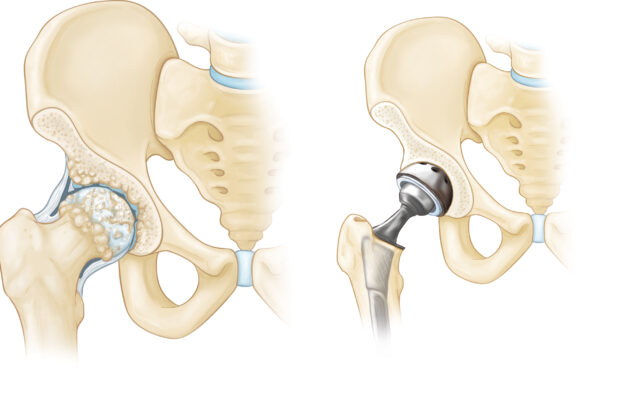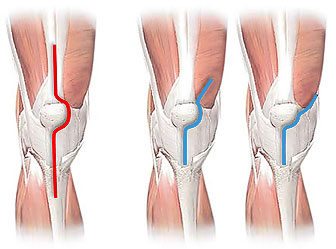Joint replacement is a surgical procedure in which the damaged joint (entire or parts) is removed and replaced with a new joint – this is prosthetic joint – called a prosthesis which may be made of ceramic, or plastic or metal. This prosthesis is so fabricated that it replicates the functions of the joint being replaced.
BENEFITS
- Joint replacement surgery is considered to be a suitable option when the damage to the joint and the surrounding tissue like the cartilage is extensive. This can be caused by an injury or disease. This when results in extensive chronic pain and disability, joint replacement surgery is a viable option.
- When non surgical interventions like physical therapy or physiotherapy, oral medications, rhizotomy (injections) and alterations to daily activities do not result in any relief to the pain and immobility, replacement surgery is recommended.
- It results in improving your life quality. It relieves an individual of pain and makes the person more mobile. Most commonly treated joints with a replacement surgery are hips and knees.
- It has long term outcomes of easy and comfortable daily activities as these replacements last for 15 – 20 years and give a patient improved mobility and strength. The patient is able to perform daily functions like walking, bathing, climbing stairs with much ease which would not have been possible otherwise.
Risks
Like in any other surgery, joint replacement surgery also has few risks or complications which are mostly treatable.
- Infection. At times post operation, at the hospital or when you are discharged, the new joint and/or surrounding areas may get infected. Medications or subsequent surgery may be required to correct it.
- Blood clots. There may be lumps of blood – blood clotting which is characterised by pain and swellings in the hips and legs. Blood thinning drugs may be advised or special customised stockings for this.
- Loosening and/or dislocation. The new prosthesis joint may loosen or the prosthesis ball be displaced from the socket causing pain. Wear and tear may also cause the joint to loosen. This may be corrected if worse by second surgery or by braces if the damage is caught in time.
- Nerve and blood vessel injury. During the surgical procedure, sometimes there may be damage to the nerves and the blood which are near the replaced joint. This will improve with time.
Dr L Tomar is eminent joint replacement surgeon practicing in Delhi for more than two decades and he is highly expert in field of invasive and non-invasive orthopedic procedures and his expertise lies in providing complete patient care while performing all involved surgical and non surgical procedures with complete precision




